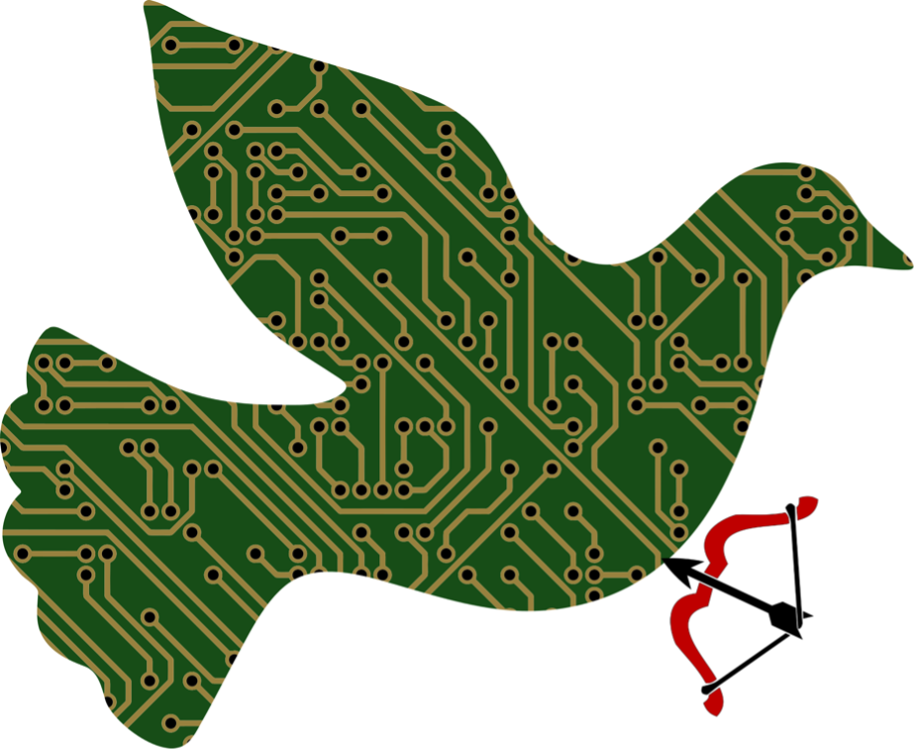
Recently researching material to assess the current challenges in our cyber defense landscape, I picked up Striking Back: The End of Peace in Cyberspace and How to Restore It by Lucas Kello. Kello, Co-Director of the Centre for Doctoral Training in Cyber Security at Oxford University, presents a detailed perspective on the current state of “unpeace” in cyberspace.
Kello discusses the backdrop of western strategic thinking that is centered on a “war or not war stance.” He moves forward to discuss a modern rivalry’s actions reflected against recent cyber incidents that share a defining characteristic.
“Their cumulative effects inflicted greater political, social, and economic damage than even some isolated acts of conventional war, yet their non-violent nature placed them below war’s legal and institutional definition.”
These recent cyber incidents also violate his definition of peace – “a state of restrained rivalry (if not comity) and respect for sovereignty in which nations are largely free to manage their internal political and economic affairs without decisive foreign intervention.”
Kello goes on to say –
“Much of modern interstate rivalry fits neither the destructive criteria of war nor the acceptable boundaries of peace. Rather, it is unpeace, or mid-spectrum rivalry, which is more damaging than traditional peacetime activity (such as financial sanctions or criminal indictments), but not physically violent like war. Although states have conducted sabotage, assassinations, special operations, and covert action throughout history, unpeace is different because direct forms of violence do not occur, nor are they threatened. Unpeace has limits. Even the most potent computer code cannot conquer territory. And while it might coerce state behavior, it cannot do so easily. Rather, its main strategic utility is another: to debilitate adversaries from within.”
…and this book was written in 2022.
During the last two years ransomware attacks have increased at an unprecedented rate. We are being attacked by nation states and their proxies in a very coordinated effort. The free market is being seriously weakened from within. These nation states are doing this as part of their long-term agenda to destabilize the free-market economies and cause internal strife.
Yet, by Kello’s definition, it is still “unpeace.”
Thinking about this trend, I then put on my engineering hat and considered the dynamics involved.
Solutions with much higher risk reduction per unit cost are required to counter the asymmetric attacks experienced by the free market in cyberspace.
Some medium and large organizations are responding by implementing a service or solution that is lower in cost, and seriously raises their risk profile. Buying a higher unit cost solution is not a sustainable trajectory. Rather, organizations might work to retain the teams that are in place, as they are usually best suited to the operational challenges, augment their efficiency with updated skills, and add resources.
Wiping the slate clean by eliminating existing teams to hire cost effective offshore teams in completely different jurisdictions lowers costs but has significant challenges that increase risk to the organization.
Operationalizing your existing team with new higher risk reduction per unit cost tools would be a better path. Utilizing next-gen solutions that are simpler to implement and operate are more effective in stopping attacks on an ongoing basis.
Management requires cyber security to be more effective and cost less. I am witnessing some organizations implement such poor decisions that it makes me gasp. I am currently waiting for their names to pop up in my ransomware tracking console. In my opinion, it’s only a matter of time before organizations that are not prioritizing cyber security properly take a hit.
I am anxious to finish the book by Lucas Kello so that I can discuss his response to these acts of unpeace in greater detail, but I am convinced that we need to look at a way to manage the cyber security tasks with tools that have more effective layers; tools that can stop the ransomware and attacks and warn us so we can respond with our well-trained teams. They are the front line along with everyone that works in the organization.
Do you think we’re living in a world of “unpeace?” If so, how can we stop the damage? If you think this is topic is worth a discussion, reach out to me via Stygian Vortex Security Consultants.
